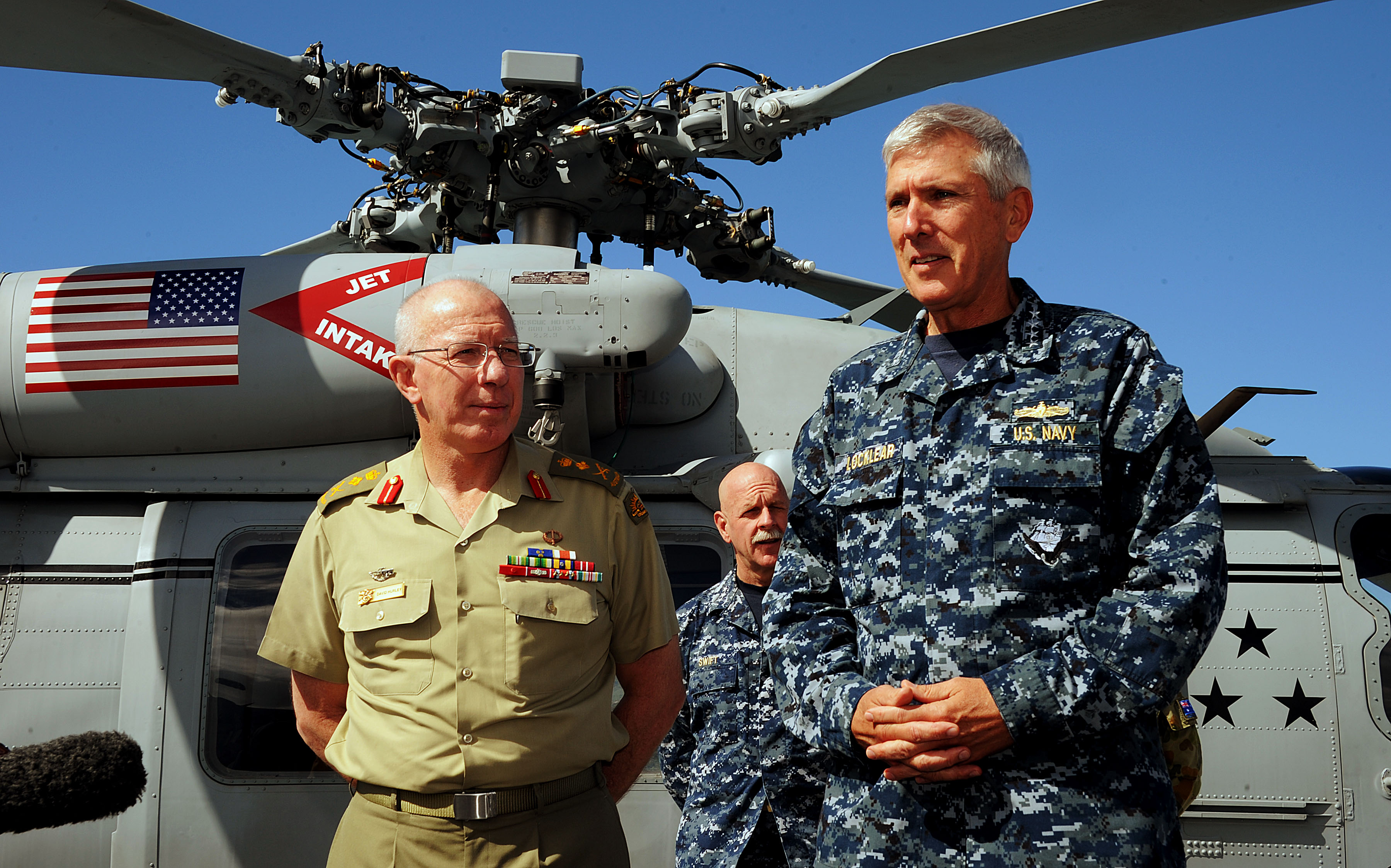
Defence and security have yet to feature in this election. But it should. As ASPI's Davies and Thomson
recently pointed out, the ADF is in a dire position, particularly in relation to the sustainment of forces over the next decade. Sustainment (spare parts, maintenance, modernisation, upgrading) is just as important as the sharp-edged fighting tools of war: ships, planes, tanks and skilled people. The situation's worrying enough now but it just gets worse in future.
Despite the wishes of the strategically blind, it isn't possible to effectively provide for the defence of this country at the start of the 21st century with Defence consuming only about 5% of government expenditure and 1.5% of GDP. That we've provided inadequately isn't alarmist, nor is it a myth—it's a fact recognised by both political parties, but yet to impact on the Australian consciousness. Both parties agree that Australia should be spending 2% of GDP on Defence. This means that we're spending about 25% less on our defence than everyone agrees that we should. Think about it.
The ADF might be ‘better’ than at any time since the Vietnam War, but measuring ourselves against ourselves is a particularly pointless exercise. The bar for military competence started lifting at least on 9/11, if not before. The failure to fund defence since the Howard years is a national disgrace. Funding at 2% for decades is now needed to bring the ADF to a state in which Australians can be comfortable that it can meet current levels of readiness even for deployments of small forces, can field a more substantial joint warfighting force within about 6 to 12 months, and is able to expand further should the world or our region really go bad. We might have been able to get away with it while the US was dominant, but not now. While the Government might hold up current purchases and builds (Growler electronic warfare aircraft, amphibious and air warfare ships) to reassure the Australian people, there isn’t the money to cover future plans, and not enough for sustainment of the capabilities either on the books now or about to be delivered. It just doesn't compute.
Neither can you rely for our security on the popular view which the Government implicitly encourages, that the US will always 'be there'. The US is indeed Australia’s natural ally and we're lucky to have it. But there's a price to be paid to be a US ally, part of which is participation in wars led by the US. The other part is for allies to provide adequately for their own defence in their own region. This hasn't been much in evidence since just after the Vietnam War, but it can be seen now in the US national psyche, and is likely to become more prominent in the near future. The US alliance is rightly seen as the most important element of Australian defence, but not if it's abused to justify irrational reductions in our own defence expenditure, a free-riding strategy which most US allies employ.
That's now becoming a very dangerous strategy. The world is at least as uncertain as it has ever been. The world economic and security order is threatened by events in the Middle East, contested US hegemony worldwide, a rising China, various regional tensions, an impotent Europe, and unpredictable but powerful non-state actors. US isolationist tendencies, especially towards the end of the second Obama administration, indicate the US may not want to come to its allies aid, and the parlous US economic state may mean it just may not be
able to come to even deserving allies aid.
Even if an Australian government decided today to begin to meet its own aspirational 2% spend target for defence—a highly unlikely occurrence—it'd be years before the ADF would be in a position to achieve Australia’s national objectives in a modern battle, much less a modern war. And the longer we put off commencing adequate funding of defence, the harder it's going to be to be better than anyone but our previous selves.
Because we have once again got ourselves into this hole, the US is very important to us. In the short- to medium-term, the US alliance remains critical to Australia, but while we refuse to provide adequately for our own defence, as an ally we're really a supplicant.
We have a real problem in defence, which is why the views of US commentators are so important. If we refuse to provide adequately for our own defence and so rely heavily on the US, then how will the US consider us? Do we deserve saving at the cost of US treasure and lives, if we we're not pulling our weight and won't save ourselves? If the US is so overextended in some future military contingency in the Middle East and the Pacific much less the Indian Ocean, it's sobering to contemplate what we could do by ourselves. And, if we can't do much now, when on current plans and inadequate expenditure levels can we achieve anything much at all? A free-riding minimalist defence strategy based on hope isn't likely to deliver the capability we might need.
This is why it is important that the
views of someone like Rich Armitage are taken into account. Good allies are those that stand side by side in facing the challenges of the world. If we don't get our defence expenditure appropriate to the demands of the strategic environment, not only might we not be able to stand side by side with our major ally, but we may have to stand on our own. A frightening prospect.
Jim Molan is a retired Major General in the Australian Army and is a commentator on defence and security issues. Image courtesy of Department of Defence. Print This Post
Print This Post